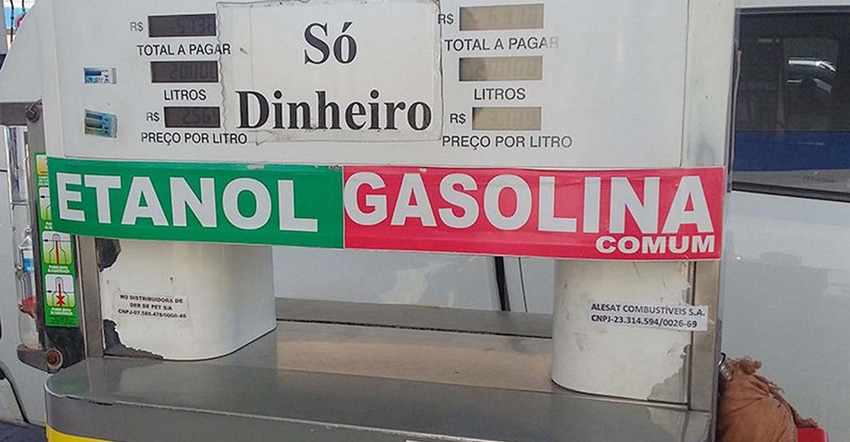
It looks like your ethanol exports to Brazil are likely to fall off soon with a new ethanol import quota and tariff regime announced late last month.
The new rule, set by an inter-ministerial trade body including the Ministry of Agriculture, establishes a yearly ethanol import quota of 158.7 million gallons of ethanol, broken into four quarterly quotas of 39.7 million gallons each, tariff free. Any imported ethanol after that each quarter must pay a 20% tariff for at least the next two years.
Over the first six months of the year, Brazil imported nearly 344 million gallons of ethanol—much of it at prices below what domestic producers were able to offer. That was a 320% increase over 2016 imports. And Brazilian sugarcane ethanol producers have been in a world of hurt, as they’ve been unable to compete—especially those producers in Brazil’s Northeast, relatively close to U.S. Gulf ports.
The United States is, by far, Brazil’s biggest supplier of imported ethanol.
See Brazil producers seek import tariff.
No problem when commodity sugar prices are high
Brazil has a huge demand for ethanol as all gasoline at the pump in Brazil is a 27% ethanol blend, and every filling station nationwide is mandated to keep at least one 100% ethanol pump. Pure ethanol and flex-fuel cars are popular nationwide. Brazil's sugarcane industry doesn’t usually squawk too loudly about Brazilian imports of ethanol when sugar prices are high. Sugar prices have often been pretty good lately—and you can’t have it both ways with sugarcane: Any given pound of sugarcane will give you either ethanol or sugar—but not both.
More ethanol
Brazil’s sugarcane crushers focused on biofuel production over sugar in the first half of last month due to tax breaks the Brazilian administration had put in to encourage greater domestic ethanol production.
So it’s no wonder that the Sugarcane Industry Union, known by the acronym UNICA, applauded the decision, saying the sector “has been feeling a significant impact as a result of the increase importation of the biofuel over recent months.”
In January of 2012, the U.S. $.54 per gallon tariff on imported Brazilian ethanol expired, and the two world ethanol superpowers—the U.S. and Brazil—have helped turn the biofuel into a commodity through free trade of the product.
Well, it was a good nearly five-year run.
The opinions of the author are not necessarily those of Farm Futures or Farm Progress.
About the Author(s)
You May Also Like






